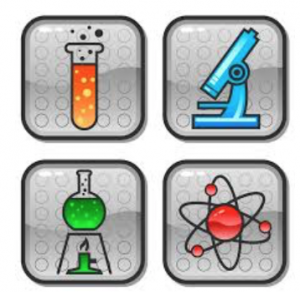Research Proposal (5%)
A research proposal is a form of written communication that scientists use to request approval and funding for research. Research proposals are common writing assignments in undergraduate and graduate science courses. Proposals challenge students to develop original hypothesis, design effective studies, and convincingly argue that new research needs to be conducted.
Proposal Goals
Hypothesis:
Your proposal for research begins with you developing a research topic and hypothesis. A hypothesis is an explanation or claim made on the basis of “limited evidence” as a starting point for further investigation. In other words, a hypothesis is a claim that has not been proven. It is necessary for you to know something about the topic to be able to develop a hypothesis. You are advised to query the ongoing issues and questions about your specific topic to help develop enough background information to construct a strong hypothesis and introduction to the research issue.
Design Effective Studies:
To demonstrate that you have designed an effective study, you have to search for other previous studies on your topic to build your background information and methods through which you will justify your claim. Because you are not conducting an experiment, your methods section of the proposal will contain the sources you will be using to evaluate your hypothesis. This is also the area where you evaluate the research methods in previous studies to find strengths and weaknesses in the study’s procedure and analysis. You have to identify the author/title and complete cited work(s), and discuss how these sources might be relevant to your topic. This is where you try to find justification for new research to convincingly argue that new research needs to be conducted.
Convincingly argue that new research needs to be conducted:
Your proposal concludes with your anticipated beneficial outcomes. You have already examined your sources and identified either (1) a gap in previous research, (2) have raised a question about previous research, or (3) have proposed an extension of previous research. In other words, surmise how your sources (both supporting and countering-arguing) support your hypotheses, and explain the overall benefits it might have on a larger purpose.
Format Guide
- Introduction Section: Present research issue motivating proposed study, importance of the research, and a hypothesis.
- Background: Present background information about previous studies on the issue. This is where you need to do some preliminary investigation to understand key issues on your research topic. You need to convey what other experts are saying in the field about the topic issue.
- Methods: Identify the scholarly sources you will be using to justify your hypothesis. Your sources act as a planned research method through which you will describe, analyze, and synthesize to justify your hypothesis. It is essential for you to surmise how your sources are relevant to your topic.
Yours sources should be put in APA bibliography format:
Use APA citation formation for your topic heading for each source. This would include the name of the author(s), title of the book/journal article, journal database (if applicable), publisher and publishing date, and so on. In other words, each source is formatted the same as if it was a work-cited page, then followed by a summary. The summary provides very brief highlights from the text relevant to your hypothesis, both supporting your hypothesis and counter-arguing it, conveying discrepancies/issues that might have some relevance to you “establishing a niche” for further research. Refer to OWL Purdue One-line Writing Lab as a formatting reference: https://owl.english.purdue.edu/owl/resource/614/03/. - Outcomes: Conclude your proposal with your anticipated outcomes and overall benefits. This is where you convincingly argue that new research needs to be conducted. (see above)
- Sources: This assignment requires a minimum of four science source articles. Two of the four articles have to be based on research that incorporates a scientific study.
Due Dates:
First Draft: Wed, Nov 7
Final draft: Mon, Nov 12

